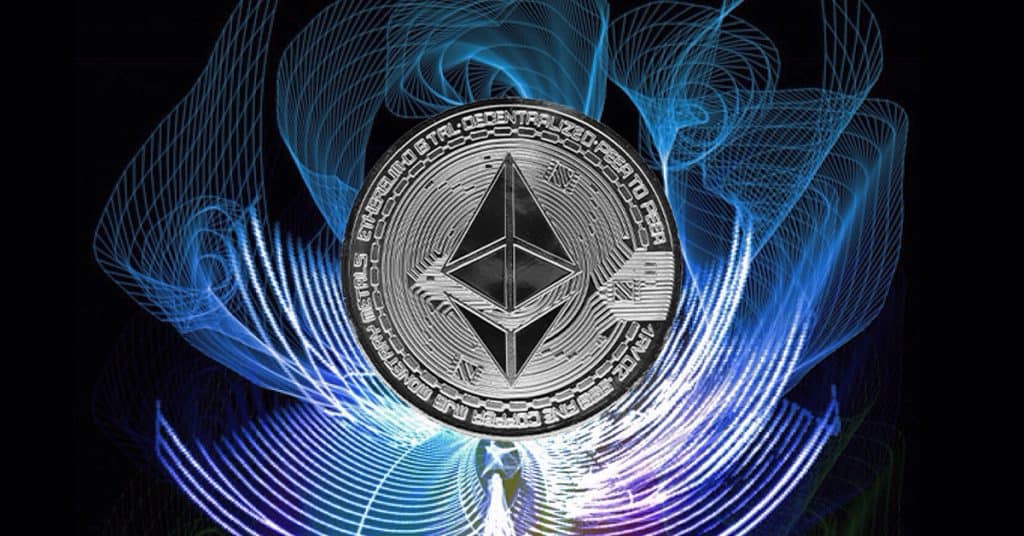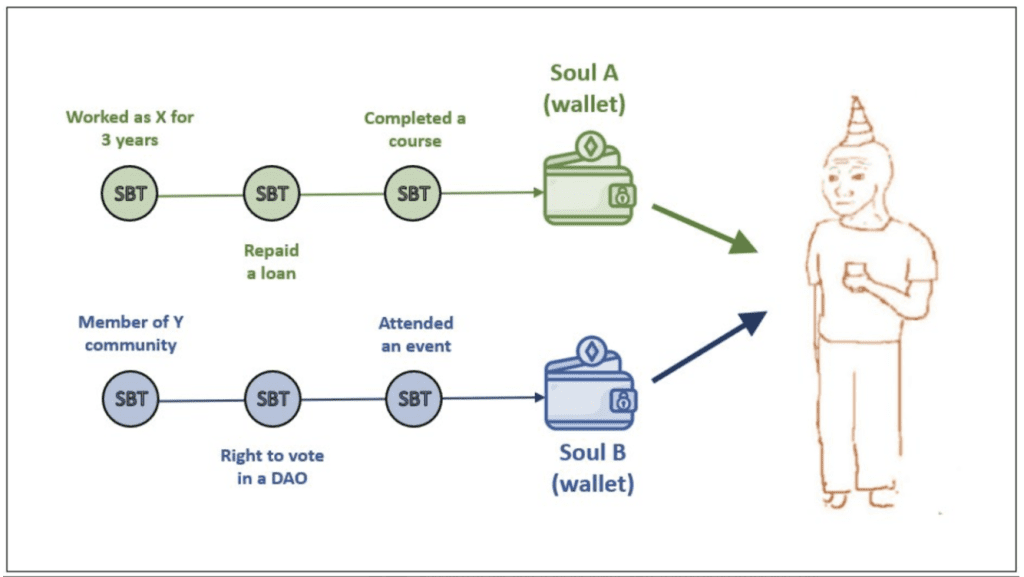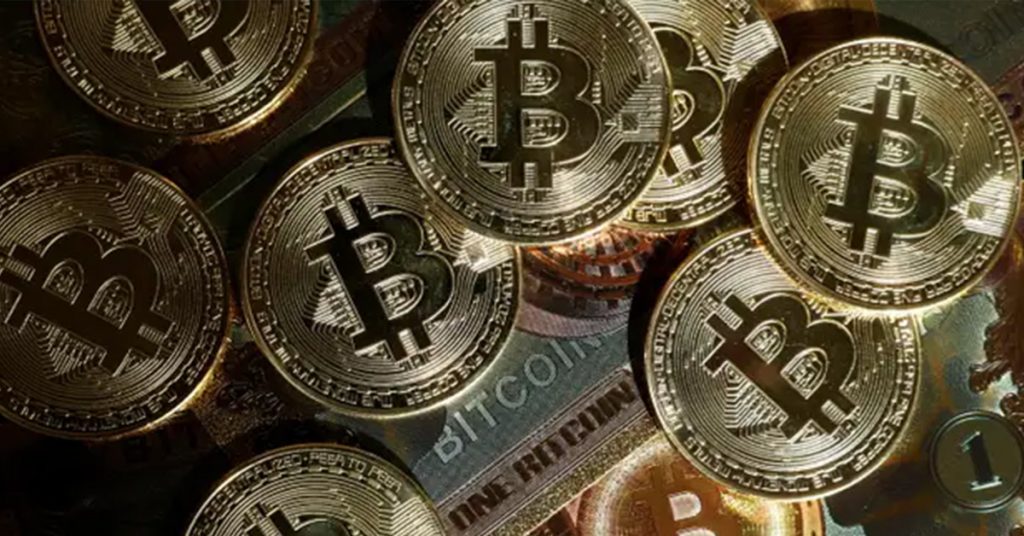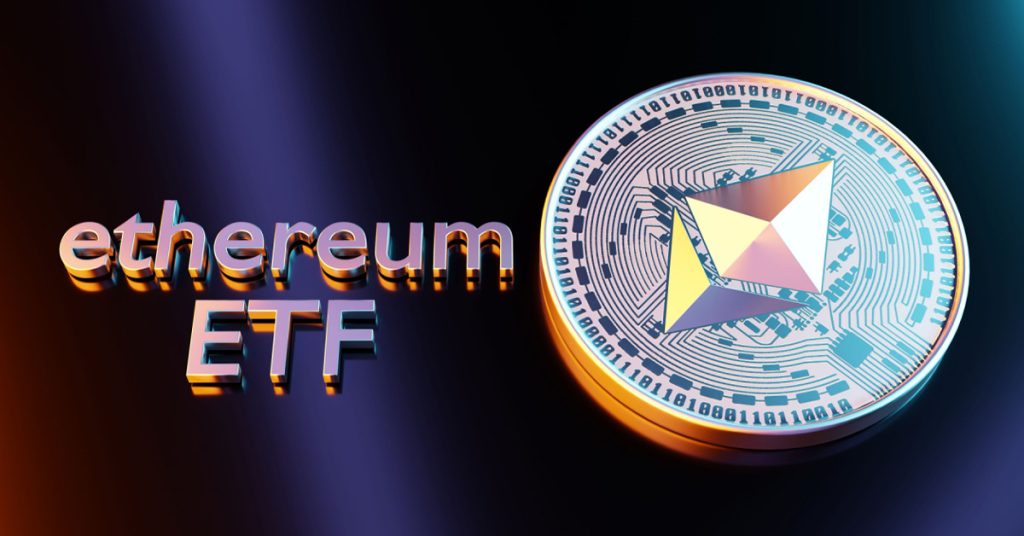Soulbound Tokens | An Explosion of Possible Use Cases for Web3

Basically everything in crypto has been tradable thus far. After monetary (fungible) tokens came NFTs, unlocking a market for unique, non-fungible online assets. But some things are not tradeable, yet still vital to a functioning (online) society. Anything that has to do with identity and reputation. Can those assets also go on-chain? Enter: Soulbound Tokens on Ethereum. Will this be the use case of the next bull market?
What is a Soulbound Token?
The Soulbound token (SBT), exists only on the drawing board and can be viewed as a type of NFT that cannot be traded. Why not? Because it is inextricably linked to a particular identity, or ‘Soul’. A white paper co-authored by Ethereum founder Vitalik Buterin introduces this new type of token.
Consider the following items, of which it would be nonsensical or even illegal to trade them:
- Your university degree
- Your driver’s license
- Your credit score
Collecting these personal credentials is valuable in real life, so these should also be valuable in a decentralized economy. But as mentioned, the fact that something has value doesn’t mean it should necessarily be tradable. Some things are bound to the ‘Soul’? What is the Soul? It is a wallet to which SBTs can be transferred that represent such non-tradable properties.
SBTs can be:
- issued to a wallet (Soul)
- made revocable by the issuer
- public or private
The creators of the concept believe that crypto needs these kinds of tokens to take a new leap forward. And there’s some merit to that idea. Bitcoin solved the double spend problem for online money. But it wasn’t designed to solve the problem of duplicating personal identity – by bots, for example.
What Inspired the Idea of Soulbound Tokens?
It is known that Vitalik Buterin, the founder of Ethereum, is not a big fan of NFTs as a speculative financial instrument. In his view, owning a pricey NFT doesn’t tell us much more about the owner than that he or she is wealthy.
Inspired by World of Warcraft (WoW), where players can win Soulbound items, Vitalik got to thinking. In WoW, killing a powerful monster is the trigger for getting a ‘Soulbound’ reward: it stays tied to you as the player. No other player, no matter how much money they have, can buy it from you. You killed that dragon and no one else. So while a traditional crypto wallet shows how much money you have, a Soul shows what you have achieved as a person.
Use Cases of Soulbound Tokens
In the white paper, the authors call this principle of non-transferability essential to building a Decentralized Society (DeSoc). A society where the achievements of individuals and the relationships between them are encoded on the blockchain through these Souls.

In the above diagram (thanks to Leo Glisic for the image), you see an example of the sort of tokens that go into a Soul. It also makes clear that a person can have more Souls. After all, they are wallets.
The top use cases listed by the authors of the whitepaper are:
- Establishing provenance (origin)
- Unlocking undercollateralized lending markets through reputation
Let’s discuss these.
Use Case 1: Establishing Provenance
Take the example of an artist who wants to combat deepfakes imitating his art. The artist has a large number of relevant SBTs in his Soul. He or she can mint NFTs from that Soul. The presence of the SBTs in his wallet make it likely that he is indeed who he claims to be – while staying pseudonymous if he wishes so. There is no obligation to reveal one’s real-life identity in order to set up a Soul.
Another interesting example comes from crypto blogger Milkroad. Suppose, he thinks out loud, I want to hire a writer. How cool would it be if I could do that based on a track record of actual on-chain behavior? See, anyone can say they know a lot about DeFi. But suppose that person has a “degen score” based on the accumulated on-chain activity of his wallet. That speaks to real experience. It is again important in that case that the tokens in such a wallet are SBTs and therefore not transferable.
Use Case 2: Uncollateralized Lending
Current forms of lending in defi are almost always with other (crypto) money as collateral. For example, you lend USDC with your Ether as collateral. But that’s not a popular form of lending. People ‘in the real world’ borrow with their ‘reputation at stake’. In the world of traditional finance, that is done with a credit score, which is centralized. But not everyone has access to it: it depends on your prior history of lending.
By making loan markets open source, they can emerge bottom-up. The data on correlation between certain SBTs and credit scores can ensure that lending can even take place within groups, so without a bank intermediary in between. So SBT’s could unlock this huge market.
But Can’t You Just Sell That Soul?
It’s not impossible for a person to have multiple Souls. In other words, Souls don’t correspond to persons one-to-one. And although the Soulbound tokens themselves are not transferable, the Soul (the wallet they come in) is. It’s just not likely that there will be a lively trade in Souls.
Why not? Because suppose a developer has a Soul with an impressive number of SBTs in it, all proving what he is capable of. Of course, in principle he could sell that Soul. But the point is: what’s in it for the buyer? He can’t code. So while he might be able to fool his audience for a very short time, he won’t fool them for long. So, from a game theoretic perspective selling souls would not be likely to happen. Compare it to Bitcoin mining: it’s more profitable not to cheat than to cheat after you’ve gone through all that trouble spending so much energy.
Conclusion: Why are Soulbound Tokens Important for Ethereum?
SBTs could be important for the long-term success of Ethereum (and other layer 1 chains). To gain more market share, crypto should expand its scope to ‘real’ world use cases. So far, Decentralized Finance is mostly ‘playing with itself in the sandbox’. Swapping tokens back and forth that are not linked to the real world is only a limited use case. We need to venture out!














